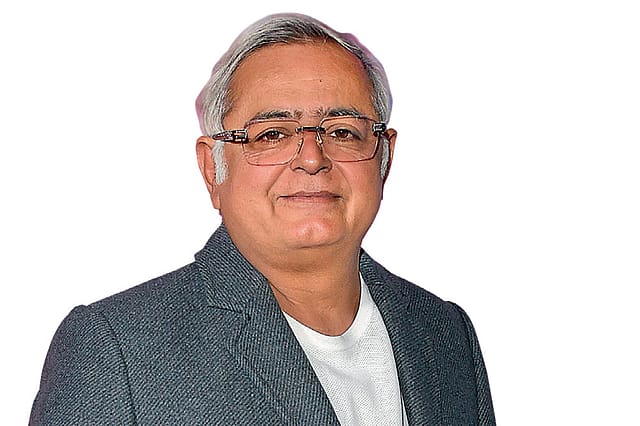Paying for Pricey Water

The food and beverage industry is going to kill the theatrical business. That is the worst kept secret in the film industry that few want to talk about, especially as Hindi film box-office business is picking up. But Hansal Mehta doesn't believe in mincing words. He spoke to me recently about going to watch Jawan in a multiplex. It cost him `11,000, snacks included, which is an enormous amount for a middle-class family. "I was not paying, my friend casting agent Mukesh Chhabra did, but the amount is ridiculous," he says. As a result, the medium and small-budget movies which need word-of-mouth to survive beyond the first weekend just fall by the wayside, pushed out by the big-budget movies where there is more opportunity to raise ticket prices and step up F&B service. For the theatrical chains, F&B revenue is captive money. For PVR, for instance, in the first half of FY23, F&B revenue was 32 per cent of its overall income. Add to it the practice of inflating ticket prices for potential blockbusters in the first weekend, and you have a situation where moviegoers are really being made to pay for their passion. There is no corresponding subsidy for ticket prices for movies made on smaller budgets. And with streaming services declining to release riskier and edgier movies, such as Dibakar Banerjee's Tees, which Netflix has effectively blocked for over two years now, audiences will be denied a different kind of cinema altogether. What's worse, even when they do release them, as Netflix did for Anubhav Sinha's Bheed and Sudhir Mishra's Afwaah, it is almost apologetically, without fanfare. So, it really is up to the film industry and the exhibitors to discuss whether an overpriced bottle of water is more important to them than good cinema and happy audiences. The south, which has more than 50 per cent of single screens in the country, kept its connection with audiences alive financially with lower ticket prices and culturally with more rooted cinema.
The Poetry of Mita Vasisht
Some female actors have songs that get them invited to stage shows and prove to be an endless source of income. Neena Gupta did the number 'Choli ke peeche' from Subhash Ghai's Khalnayak (1993), a song she was reluctant to do initially but relented after being persuaded by the filmmaker. Mita Vasisht, who's been muse to Mani Kaul, TV's supervillain, and now a streaming staple as the strong police officer or powerful chief minister, has never gone by any rules, which insist that a woman actor must have a song which she can perform well after her retirement from the big screen. She has created her own work of art, combining song, poetry and conversation, in tribute to Lal Ded, the Shaivite mystic poet who lived in Kashmir 700 years ago. To hear Vasisht sing full-throated without any accompaniment on stage, using merely her voice and body, is a gift. It is one she nurtures by holding close what is dear to her. Her work on Lal Ded began with her examination of Bhakti poets because she was looking for a new kind of feminism that would resonate with her. In 2012, she completed the documentary film She, of the Four Names, commissioned by Public Service Broadcasting Trust, India (PSBT) based on how Kashmiris across Jammu and Kashmir remembered Lal Ded. Alongside that is her play on the poet, solace and comfort for many in their dark nights of the soul.
Openomics 2026: Continuity and Conviction
06 Feb 2026 - Vol 04 | Issue 57
The performance state at its peak
Scene and Heard
If anyone wants to capture the state of the media currently, then there is nothing better than Vinay Shukla's While We Watched (2022). The documentary, which has won laurels globally but is yet to be seen commercially in India, needs to be viewed to get a ringside view of press freedom. It is packed with emboldened voices in the public domain who reject many of the beliefs of freedom one grew up with. Shukla's camera observes without commenting or pontificating, but works effectively as a mute spectator of a very public issue. It is skillful filmmaking, very much in evidence in his first documentary, An Insignificant Man (2016). And though it is depressing, it is also strangely hopeful in the everydayness of journalists doing their job to the best of their abilities. As the star of the film, journalist Ravish Kumar says at the end, "Not all battles are fought for victory. Some are fought to tell the world that someone was there on the battlefield."
